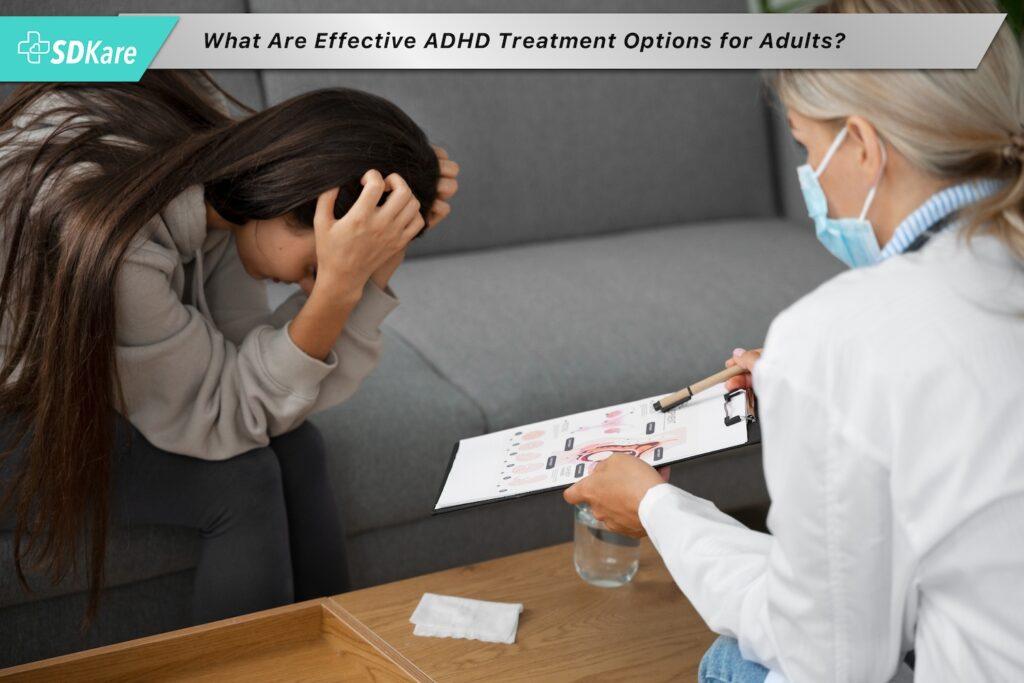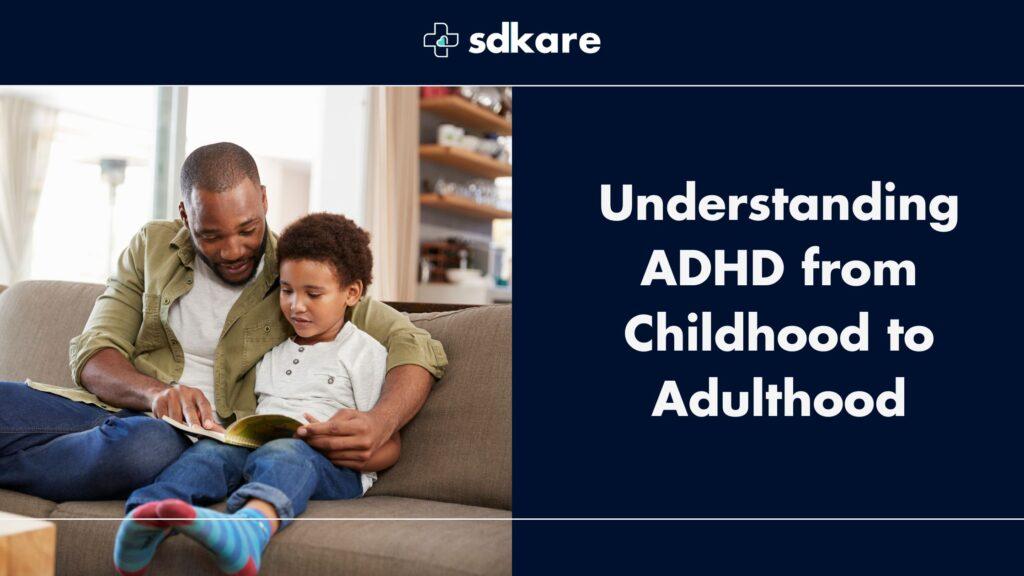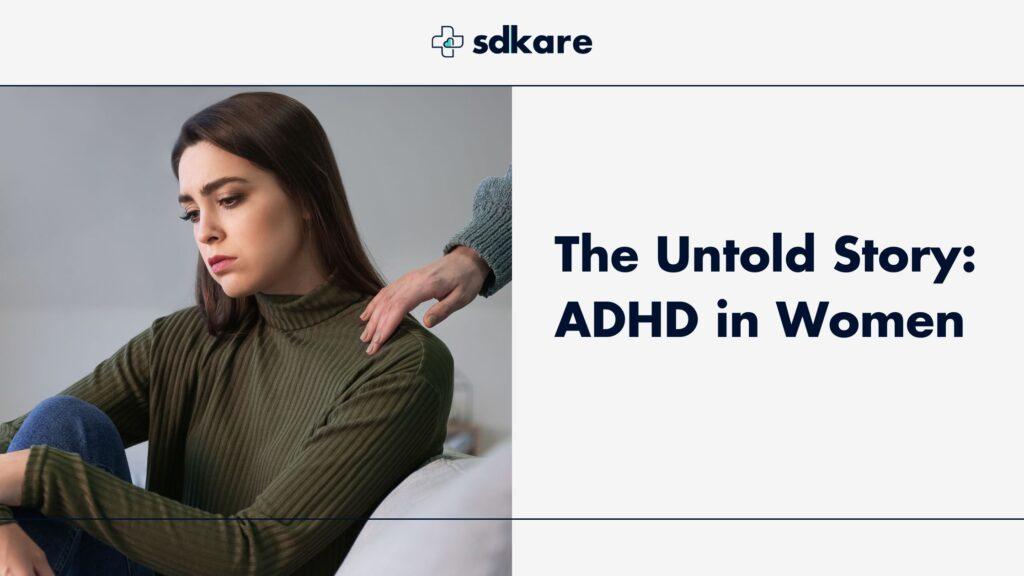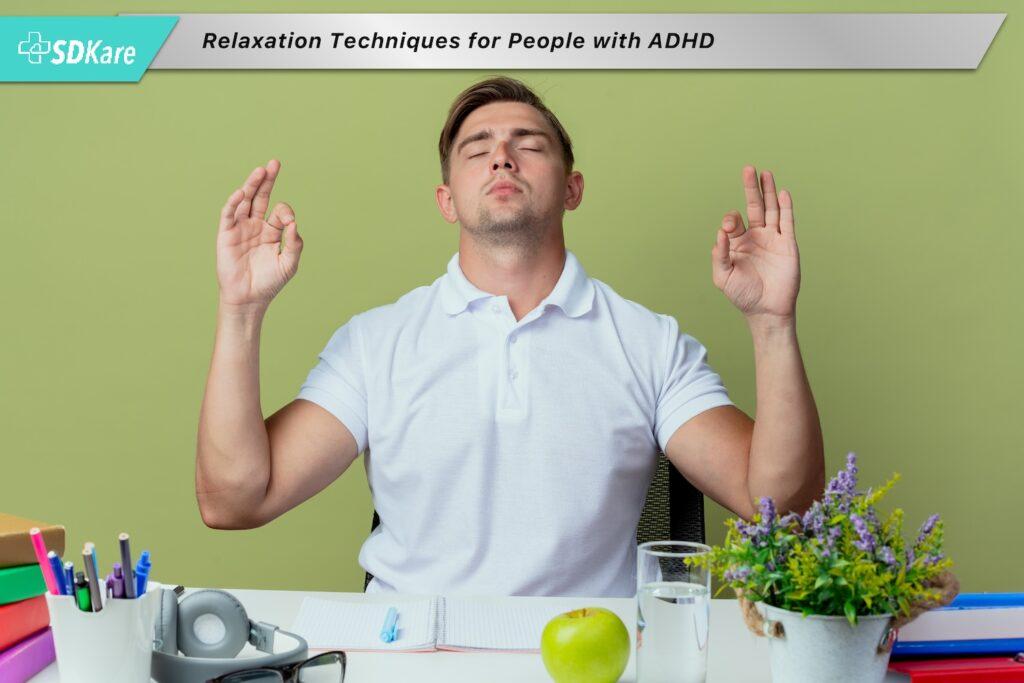Attention Deficit Hyperactivity Disorder (ADHD) is not just a condition that affects children; it’s a lifelong challenge that can persist into adulthood. Fortunately, there are several effective ADHD treatment options for adults. In this article, we will delve into these ADHD treatment options and shed light on how they can help individuals manage their symptoms and lead a more fulfilling life.
Understanding ADHD in Adults
Before we explore treatment options, it’s important to understand the characteristics of ADHD in adults. ADHD is a neurodevelopmental disorder that affects an individual’s ability to focus, control impulses, and manage their time effectively. In adults, these symptoms can manifest in various ways, such as chronic disorganization, forgetfulness, and difficulty in maintaining relationships or employment.
Common Symptoms of ADHD in Adults
- Inattention: Adults with ADHD often struggle to pay attention to details and may frequently make careless mistakes at work or in other activities.
- Hyperactivity: While hyperactivity tends to decrease in adulthood, restlessness and an inability to relax can still be observed.
- Impulsivity: Adults with ADHD may act impulsively, leading to problems in personal and professional relationships.
- Disorganization: Difficulty in organizing tasks and activities is a common issue for adults with ADHD.
Now, let’s explore the effective ADHD treatment options for adults.
Effective ADHD Treatment Options:
Medication
Medication is often a primary treatment for adults with the most commonly asked question which is what are treatment options for ADHD? Firstly, medications like methylphenidate and amphetamines are commonly prescribed. Furthermore, these medications work by increasing the levels of certain neurotransmitters in the brain, thereby enhancing focus and concentration. Additionally, it’s crucial to consult a healthcare professional to determine the right medication and dosage for your specific needs. Most importantly, remember, medication alone might not be sufficient; it’s usually combined with other therapies.
Cognitive Behavioral Therapy (CBT)
Cognitive Behavioral Therapy is a highly effective option for adults with ADHD. CBT helps individuals develop practical skills to manage their symptoms, cope with challenges, and improve their overall quality of life. Through CBT, patients can learn strategies for time management, organization, and impulse control. This therapy can be a valuable addition to medication, providing individuals with the tools to address the daily challenges of living with ADHD.
Diet and Nutrition
Diet plays a significant role in managing ADHD symptoms. While diet modifications may not be a standalone treatment, they can certainly complement other therapies. A diet rich in omega-3 fatty acids, antioxidants, and lean proteins may help improve focus and concentration. Additionally, reducing the intake of processed foods, artificial additives, and excessive sugar can have a positive impact on ADHD symptoms.
Exercise
Regular physical activity is essential for everyone, but it can be particularly beneficial for adults with ADHD. Exercise helps release neurotransmitters that improve mood, attention, and motivation. Engaging in activities like aerobic exercise, yoga, or even mindfulness meditation can help adults with ADHD manage their symptoms more effectively.
Support Groups
ADHD can be a challenging condition to manage alone. Joining a support group can provide a sense of community and shared experiences. Members can offer valuable advice and coping strategies. Additionally, being part of a support group can help reduce feelings of isolation and provide emotional support.
Time Management and Organizational Skills
Learning effective time management and organizational skills is crucial for adults with ADHD. Time management techniques, such as creating schedules, setting reminders, and using task lists, can help individuals stay on track and avoid procrastination.
In conclusion, effective ADHD treatment options for adults are varied and can significantly improve the quality of life for individuals with this condition. From medication to therapy, lifestyle changes, and support groups, there are numerous strategies to help manage ADHD symptoms.
Remember that the right approach might involve a combination of these options. Firstly, consulting a healthcare professional is important to determine the most suitable treatment plan for your unique needs. With the right treatment options for ADHD and support, adults with ADHD can lead fulfilling and productive lives, successfully managing their symptoms and achieving their goals.
Moreover, don’t hesitate to seek help and explore the various ADHD treatment options for adults. By taking steps, such as seeking support, individuals with ADHD can embrace their uniqueness and thrive in all aspects of life.




